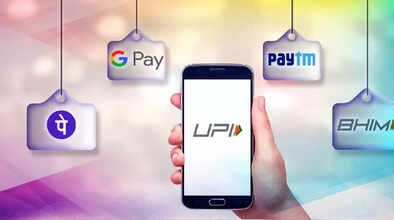UPI: Do you make such payments through UPI every day? You may get a tax notice! Do this to avoid it..

Nowadays, digital payment has become a part of our daily life. ₹100 to the tea vendor, ₹200 to the vegetable vendor, or ₹500 in exchange for some household service; these transactions are now common. People think, Why would anyone notice such a small amount. But if these transactions keep happening every day, then the picture can change at the end of the year.
Imagine if you send ₹400 to someone every day through Paytm or Google Pay, then it will become ₹12,000 in a month. In a year, this figure goes above ₹1 lakh. Now, if this money is being given or taken in exchange for some service or work, then it can be seen as income, and in such a case, it is necessary to mention it in the ITR.
Transactions with a fixed pattern are identified.
The Income Tax Department keeps an eye not only on big transactions but also on the pattern of transactions. If a person repeatedly sends or receives a fixed amount to different or the same account, it could be a sign that some income or service-related activity is going on. In such a situation, the department can check where the money is coming from and for what purpose.
The data of banks and UPI apps can reach the Income Tax Department through the National Payments Corporation of India (NPCI) and banks. This data helps to tell what kind of transactions are happening in which accounts. Therefore, a daily payment of ₹ 100 or ₹ 200, even if small, but if it is happening regularly, it can come to the attention of tax officials.
Do only transactions become the tax basis?
Mere payment does not become the reason for tax. If your total income is below the tax limit, then there is no need to worry about such transactions, especially when these are being done as expenses, such as groceries, milk, vegetables, or household items. But if you are receiving payment for services from someone, such as tuition, freelance projects, or running a small business, then it is necessary to consider such digital payments as income and disclose them.
Many people teach tuition or do freelance designing at a small level and take money from Google Pay or Paytm in return. If this income, added to your total income, crosses the tax limit, then it becomes mandatory to include it in the ITR.
It is important to give correct information in the ITR.
The initiative of Digital India has provided facilities, but accountability has also increased with it. Now the Income Tax Department does not only look at transactions worth crores, but also sees how many times, from where and through which medium the money is coming. This makes it clear that the tax system has now become more granular and data-driven. If you are making or receiving payment through digital means, it would be better to give complete information while filing ITR. By disclosing income honestly, there is no possibility of notice or penalty in the future.
Disclaimer: This content has been sourced and edited from TV9. While we have made modifications for clarity and presentation, the original content belongs to its respective authors and website. We do not claim ownership of the content.

